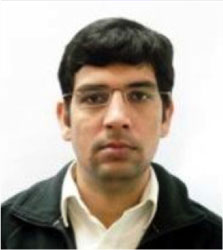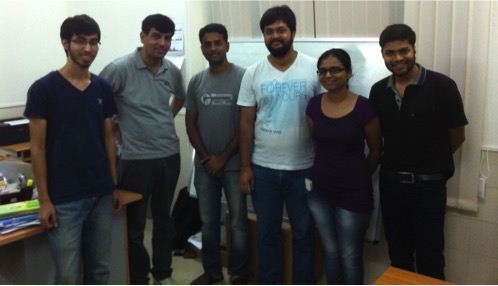Research summary
Area: Infectious Immunology and Immunopathology
In a quest to clear infections of various kinds, the host responds to the insults and induces activation of cells of innate and adaptive immune system that eradicate invading pathogens. At the same time regulatory mechanisms also operate to curtail excessive inflammatory responses. The timely induction of an adaptive immune response and its maintenance in the memory phase forms the basis of lasting protective immunity against infectious diseases and provides clue for successful vaccination. After receiving help from CD4 T cells, pathogen-specific CD8 T cells are appropriately activated to control the spread of intracellular pathogens such as viruses. Animal models are used to investigate host-pathogen interaction. For studying the function and differentiation of adaptive T and B cells, one has to secure sufficient number of antigen-specific cells in naïve state but in a normal host the frequency of T cells specific to any given antigen is very low and frustrates attempts at isolating such cells in meaningful numbers. In our laboratory we aim to understand the function and differentiation of CD8 T cells during infection with endemic pathogens such as dengue virus, Chikungunya virus and protozoan parasites such as Plasmodium in addition to herpes viruses, the latter being the most successful pathogen. Employing various molecular and immunological approaches, we try to understand the host- pathogen interaction. We are also putting efforts in developing novel animal models to study immunity and immunopathology during viral infections. We welcome creative colleagues who are interested in learning and contributing to the advancement of immunology to join our group.
Selected Publications
- Veiga-Parga T, Sehrawat S and Rouse BT (2013) Regulatory T cell function in anti-viral immunity. Immunol Reviews 255(1):182-96
- Swee KL, Guimaraes CP, Sehrawat S, Spooner E, Brassa, I and Ploegh HL (2013) Sortase- mediated installation of antigens onto anti-DEC205 enables optimization of antigen presentation and immunization against a complex set of viral epitopes. Proc Natl Acad Science USA 110(4):1428-33
- Sehrawat S, Koenig, PA, Kirak O, Schlieker C and Ploegh HL (2013) A catalytically inactive mutant of deubiquitylase YOD-1 enhances the antigen cross presentation. Blood 121(7):1145-56
- Sehrawat S, Kirak O, Koenig PA, Issacson MK, Marques S, Bozkurt G, Simas JP, Jaenisch R and Ploegh HL (2012). CD8+ T cells from mice transnuclear for a TCR that recognizes a single H-2Kb– restricted MHV68 epitope derived from gB (ORF8) help control the infection. Cell rep 1: 461-471.
- Sehrawat S* and Rouse BT (2011) Tregs and Infections: On the potential value of modifying their function? J Leukoc Biol. 90: 1079-1087.
- Rouse BT and Sehrawat S (2010) Immunity and immunopathology to viruses: What decides the outcome? Nature Rev Immunology 10, 514-526.
- Sehrawat S, Reddy PB, Rajasagi N, Suryawanshi A, Hirashima M, Rouse BT (2010) Galectin- 9/TIM-3 interaction regulates virus-specific primary and memory CD8 T cell response. PloS Pathogens. 6 (5): e1000882
- Sehrawat S*, Suryawanshi A and Rouse BT (2009) Role of TIM-3/galectin-9 inhibitory interaction in a virus induced immunoinflammatory lesion: Shifting the balance towards regulators. J Immunol. 182(5): 3191-201.
- Sehrawat S, Suvas S, Sarangi PP, Suryawanshi, A and Rouse BT (2008) In vitro generated antigen specific CD4+CD25+Foxp3+ regulatory T cells control the severity of HSV-induced ocular immunoinflammatory lesion. J. Virol. 82(14): 6838-51.
- Sehrawat S* and Rouse BT (2008) Anti-inflammatory effect of FTY720 in a viral induced immunopathology: Role of drug induced conversion of CD4+Foxp3– cells to become CD4+Foxp3+ T cells. J Immunol: 180(11): 7636-47.


